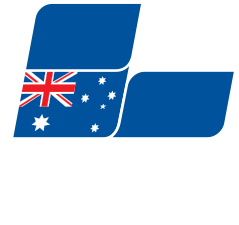Shadow Treasurer and Shadow Minister for Energy Steve Thomas says handing out more
cash to households in the form of energy credits to address rises in cost-of-living needs to
be supplemented with another moratorium on disconnections as a targeted response to
those members of our community who need help the most.
Given the current speculation that there will be similar measures in the federal budget, also
due to be handed down in three weeks, Dr Thomas has called on the Premier to provide
better targeted relief for the most at risk.
“Official interest rates were kept steady at 3.6 per cent this month after 10 interest rises in a
row which caused significant stress on Western Australian households,” Dr Thomas said.
“There is a strong chance of another 25-point rise in May, which would fall a week before the
budget, adding even more pressure on struggling families.
“In addition, many fixed-rate housing loans will jump to much higher variable rates in coming
months, making the situation for those mortgagees much harder.”
Dr Thomas said the cost-of-living crunch should be a priority for a Premier rolling in cash
from massive budget surpluses, another of which will be presented in three weeks.
“Another electricity credit and a new moratorium on disconnections would be the least he
could do with his $16 billion in surpluses over three years,” Dr Thomas said.
“He may be rich but his community is struggling.”
In answers to questions from Dr Thomas in Parliament, it was revealed that following the
most recent $400 electricity credit in July 2021 the number of disconnections by energy
provider Synergy remained stubbornly high.
“When the Premier handed out $600 dollars in credits in 2020, he also put a moratorium on
disconnections for those struggling to pay,” Dr Thomas said.
“That moratorium was promised to run from April 2020 until the end of June 2021, but the
answers to my questions show that households were being disconnected as early as March
2021.
“According to the Government’s own figures 2,399 households were disconnected for
non-payment from March to June 2021.”
The McGowan Government’s $400 electricity credit given out from July 2022 did not come
with a matching moratorium on disconnections.
“At the same time in 2022 that the second cash credit was being applied, 5,540 households
were disconnected by Synergy” Dr Thomas said.
“Obviously many struggling homeowners were much further in debt than $400, and the
handout did not save them. They were disconnected anyway.”
The issue has been highlighted by a recent report on energy retailers by the Economic
Regulation Authority which shows people who are falling behind in their payments for both
electricity and gas are accumulating larger debts, despite the electricity credits handed out
by the Government in recent years,” Dr Thomas said.
“Since this Government came to power in 2017, the debt level of those unable to pay their
Synergy bill has more than doubled from an average of $461 to $1,120 in 2021-22.
“This is an indication of those who are struggling the most; people are trying to pay their
power bills but cannot afford to pay them on time.
“They are among the most vulnerable in our society, and their average debt has gone up two
and a half times in the past six years.
“Synergy customer debt was reported to be at “its highest level since reporting commenced”
but regional consumers were even worse off,” he said.
“Household energy debts for Synergy customers averaged $1,120 in 2021-22, whereas
Horizon Power customers averaged $1,479.”
Dr Thomas said the report highlighted the need for targeted household support that helped
those who needed it most.
“If the next state budget has another cash credit of $400 for households, perhaps in
conjunction with a federal scheme, it will not stop the disconnection of someone who owes
over $1000,” he said.
“This Government is rich, and it needs to better help the most needy of our community.”

